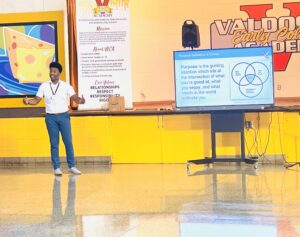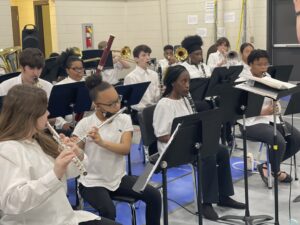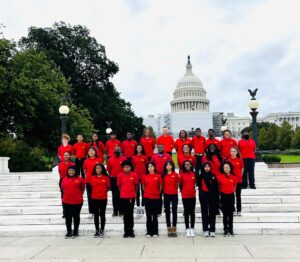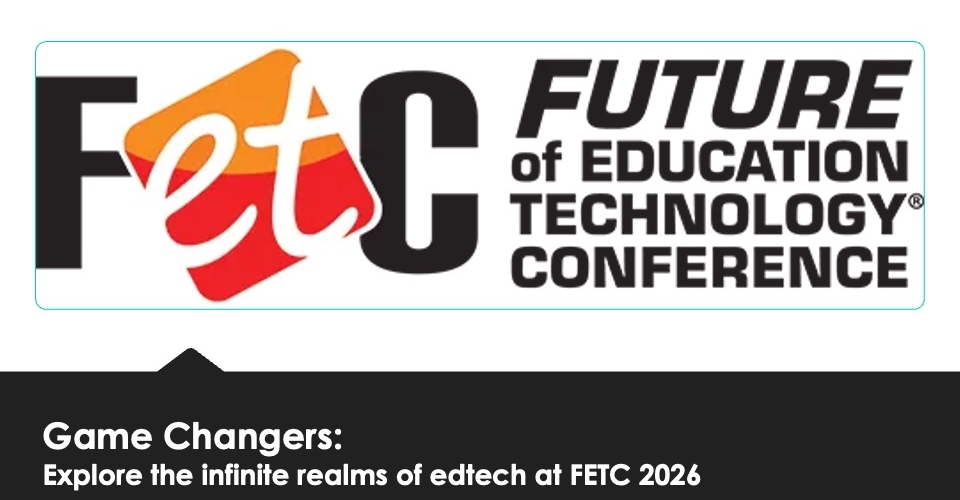Every day, students walk into the building with a purpose: to be the best versions of themselves they can be. However, they’re not simply students—they’re scholars. That’s the mindset that Valdosta Early College Academy Principal Dr. Johnnie Marshall has instilled in his student body.
“When I say scholars, I am referring to the students at Valdosta Early College Academy,” he says. “I want them to realize that they have great potential, and through the journey of our program and life, I expect them to embody intelligence and character. Regardless of the situation or circumstance, I anticipate their actions to exemplify perseverance, grit, humility, patience, kindness, and responsibility; that is the scholarly way.”
About VECA
VECA is a college preparatory program that serves students in grades 6-12. The school is celebrating its 15th year of existence, and Marshall has been there since the beginning.
“I love to say this: Valdosta Early College Academy has raised me as an educator by being exposed to phenomenal and passionate educators,” he says.
Marshall was first introduced to the program as a junior undergraduate student at Valdosta State University during VECA’s first year of existence. He student-taught under the tutelage of a dynamic and masterful science teacher and went on to begin his first year as a Physical Science and Georgia studies teacher. After making his way to the assistant principal role, he finally took the helm as principal in 2020 at the start of the pandemic.
At that time, his main focus was ensuring that every student was able to reach their academic potential, despite the circumstances.
“During the pandemic, our faculty and staff focused on keeping everyone safe while providing an equitable learning community that catered to our in-person and virtual learners,” he says. “We wanted to ensure every learner received access to the same instruction. Our learning ecosystem leveraged technology skills and resources to implement synchronous learning.”
Doing so, he explains, required the collective work of every individual at the school, and that allowed them to weather the height of the pandemic.
“Due to ever-changing safety protocols, we had to alter several initiatives and early college strategies to ensure faculty, staff and scholars were safe,” he says. “Although the previous two years have been challenging, I appreciate the faculty, staff, scholars and parents for gracefully pivoting when warranted. Our scholars continued to soar academically through the pandemic through collective teacher efficacy and strategic planning. Our scholars were able to exceed expectations while navigating the global pandemic. Collectively, we continued to build upon the legacy of VECA.”
Setting priorities
 If you were to sit down and have a conversation with Marshall, you would quickly learn that he values prioritization and setting goals for his school, and ensuring that students and faculty are understanding of his mission.
If you were to sit down and have a conversation with Marshall, you would quickly learn that he values prioritization and setting goals for his school, and ensuring that students and faculty are understanding of his mission.
“My priority this year as principal and lead learner is to reinstate essential components of our early college model that have proved to be successful and enhance our scholars’ experience, all while striving for excellence as a program,” he says. “Our theme this year is ‘Blazin’ with Purpose.’ We are intentional with our initiatives and understanding our ‘why.’ Furthermore, through relationships, relevance and rigor, we hope our scholars are empowered to use education and their life experiences to determine their why and their purpose.”
One of those essential components he knows to be so impactful, he says, is relationship-building.
“One of our core values is relationships,” he explains. “The cultivation of positive, authentic relationships is essential to our learning community. I believe cultivating effective relationships is the responsibility of every stakeholder in our community; administration, faculty, staff, scholars, parents, and community members. Through these intentional and genuine relationships, we learn about our scholars, providing us the opportunity to address the whole child. We are purposeful in creating, sustaining and enhancing our relationships with one another.”
One way they’re doing this is through their peer-mentoring program which is scheduled to start back up in December. What’s unique about this program is that upperclassmen are paired with underclassmen, which helps give younger students a student role model to look up to while giving older students an opportunity to lead and set good examples.
“During the peer-mentoring program, we pair our high school scholars with the middle school scholars,” Marshall says. “Once a month, the mentors and mentees eat lunch together. During these planned interactions, students discuss their interests, goals and their aspirations with one another. We also conduct exciting activities like team Kahoots with iPads.”
“We are very intentional regarding partnering students, and we consider their personalities, interests and aspirations when making pairs. The intentionally deepens the student body relationships. Our high school scholars take ownership of their role as mentors and hold their mentees accountable throughout the year.”
In terms of education technology, the school has implemented 1:1 iPads for students to document learning in a unique way. The leverage of Apple technologies has significantly impacted 21st-century teaching and learning at VECA and speaks to the uniqueness of their innovation as a school. Scholars are able to use iPads to create projects that amply their voice and choice in their assignments.
Since the pandemic, addressing the whole child is more important than ever. As schools across the country focus on helping their students bounce back, VECA remains vigilant in meeting the needs of each and every scholar using the principles associated with social-emotional learning.
“One way the school incorporates SEL is through their PBIS, the Positive Behavioral Interventions and Supports initiative,” he says. “At VECA, scholars are expected to ‘Exceed the KRRP Way.’ That acronym stands for Kind, Respectful, Responsible and Prepared. Students who excel academically and behaviorally receive MatchCat points through the PBIS Rewards app. These points are redeemable for incentives and celebrations throughout the year.”
In addition to encouraging student-student relationships, Marshall wants faculty to be a part of the process as well. Through the school’s traditional advisement protocol, scholars have the chance to meet with their assigned advisor for a lesson that’s tailored to meet their academic needs.
“We want our scholars to understand the importance of goal setting, self-reflection and high expectations, both academically and behaviorally,” he explains. “Scholars report to their assigned advisor for a lesson during the advisement session. The lesson ranges from various topics, and some include time management, college expectations, grit, and self-efficacy. In addition to the lesson, scholars calculate their GPAs and determine how they can improve their grades. Because we are a literacy-focused academy, scholars also monitor their Lexile scores for college readiness.”
The beautiful aspect of the advisement program, he explains, is that it helps remove uncertainty for students transitioning into high school. Middle school students report to the high school teachers for advisement, allowing them to begin building those relationships early on. Additionally, high school students report to their middle school teachers, which allows them to reconcile with their previous teachers who have already established solid foundations with those students.

Historically, VECA scholars haven’t had access to many elective courses. Fortunately, those opportunities have become a reality this year.
“Through the support of our Valdosta City Schools superintendent, Dr. Todd Cason, we were fortunate to hire a STEAM teacher and Band teacher this year,” he says. “The additional two electives have made a tremendous difference. Approximately 25% of our students are participating in the band, and several are marching in our district’s high school band. Most of the student body gets exposure to our Engineering and Technology teacher. Scholars learn the engineering design process by solving real-world problems and creating solutions. Also, scholars are learning coding and graphic design. The new additions have enhanced our scholars’ experience in the program.”
As was the case for many educational institutions across the country, VECA was forced to put field trips on hold during the pandemic. For Marshall, these out-of-the-classroom experiences help excite students for their future careers, a crucial component of any early college academy.
“Learning experiences beyond the classroom provide meaning and relevance to curricula,” he explains. “This year, I urged our faculty to consider learning opportunities and field trips beyond VECA’s brick-and-mortar. We have increased our field trips for our scholars. In addition, we are leveraging Valdosta State’s campus. We have taken our entire student body to VSU symphony orchestras and collaborated with academic departments and professors on campus. We have so many other trips planned for the year. Through these experiences, I want scholars to make connections to their learning and get excited about their future careers.”
“Each year, the 9th-grade scholars also visit Washington, D.C., to understand their role as productive citizens and learn how history has shaped our society through an interactive and engaging learning experience with the Close Up Foundation. VECA has resumed the VSU-sponsored trip. The twelfth cohort of VECA scholars visited our nation’s capital in October 2022.”

Valdosta Early College rests essentially in Valdosta State University’s backyard. Thanks to their partnership, scholars’ transition to college and/or the workforce is as seamless as possible. VECA has partnered with VSU’s Career Opportunities Department for the last three years. Every Monday, seniors visit the Career Opportunities office to learn essential career skills like resume building, interviewing techniques, professional/business dress, workforce expectations, and career interest surveys.
“So many of our dual enrollment students already have jobs, but we discovered that sometimes balancing school life, home life, and work can be challenging,” he says. “We wanted to add the Work-based Learning class as a key component to help them evaluate their load, allowing them to improve time management skills by planning their week.”
Seniors can either work jobs directly on VSU’s campus, in the community or as ELA or math AVID tutors for the underclassmen.
“The work-based learning initiative has been a blessing and I’m so grateful for our teachers, our district, but also the scholars for taking advantage of the initiative by helping them build navigational capital and prepare for life beyond VECA.”
Additionally, both juniors and seniors enroll in dual enrollment programs. Since its implementation in 2017, the program has shown tremendous success. Between 2017 and 2022, 98% of students passed their college courses. Additionally, 73% of their final course scores were A’s and B’s. Over $450,407 was saved in in-state tuition alone over the past five years based on the cost of tuition at VSU in 2022.
VECA’s spirit
Marshall’s role as principal to him is more than simply a leadership position—it’s his calling. His ability to inspire and lead the next generation of young scholars came not by chance, but thanks to the efforts of those who poured into him during his first years at the school.
“A plethora of individuals have considerably contributed to my growth,” he says. “As I reflect on our school’s 15-year journey, I am appreciative to witness a program that has created a learning community that thrives by perseverance, innovation and collaboration. It has been a blessing to experience the vision and mission of the program manifest through our entire learning community—administrators, faculty, staff, scholars, and parents.”
Anyone who has the opportunity to meet Marshall and the scholars and faculty at VECA will very quickly notice that there’s something truly special about the program.
“It’s hard to describe the spirit of VECA,” according to Marshall. “If an individual walks into the building, one can experience the indescribable synergy. Our faculty and staff are dynamic and passionate about our mission. As Rita Pearson describes, they are our scholar’s champions, the human lighthouses that provide guidance, care, and support.
“Our scholars are resilient learners who enter the program as timid sixth-graders but leave our nest as confident and distinguished graduates with approximately one year of college credit, scholarships, and determined minds to succeed in life.”
More from DA: More colleges are doing away with test requirements for good



